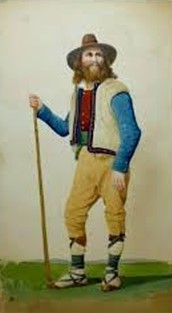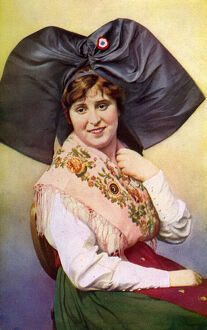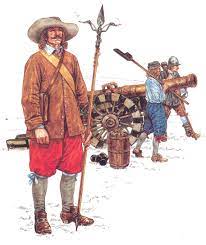Jacob Weber

Alsace male peasant
Born: about 1630 in Alsace region
Married: unknown date in Alsace region to Apollonia Zinck
Died: after 1670 in Alsace region
Family Tree: Jacob Weber
in Family Genes
Parents
- Father: Joannes Weber
- Mother: Catharina ….
Children1
- Joannès Jean Weber; b. 13 Feb 1647
- Jacob Weber; b. 23 May 1649
- Catharina Weber; b. 15 Oct 1651
- Anna Weber; b. 29 July 1653
- Brigitte Weber; b. 3 April 1659
- Michael Weber; b. 1660
- Maria Weber; b. 29 Aug 1662
- Gertrude Weber; b. 19 Feb 1665
- Adam Weber; b. 24 June 1668
Jacob Weber and Apollonia

Young woman in traditional Alsatian costume with a distinctive winged headdress with tricolour cockade, and a patterned shawl, Alsace, France. Date: 1922
The Final Years for Jacob Weber
Backdrop
Jacob Weber lived in the district of Alsace, an area of importance and dispute between France and Germany. Now a region of France, it is small in area, being 8,280 km2 and densely populated. Alsace is located on the west bank of the upper Rhine river and is bordered by Germany and Switzerland.
Once inhabited by nomadic hunters, Alsace was invaded by the Romans around 58 BC, and was made a vigorous wine growing area. From the decline of the Romans until the 17th century, it was part of the Holy Roman Empire. In 1469, Upper Alsace was sold to Charles the Bold, Duke of Burgundy.

France consolidated her hold with the 1679 Treaties of Nijmegen, however Alsace had a somewhat exceptional position in the Kingdom of France. The German language was still used in local government, school and education. Alsace remained marked by German culture and economically oriented towards Germany until the French Revolution in 1789.2

